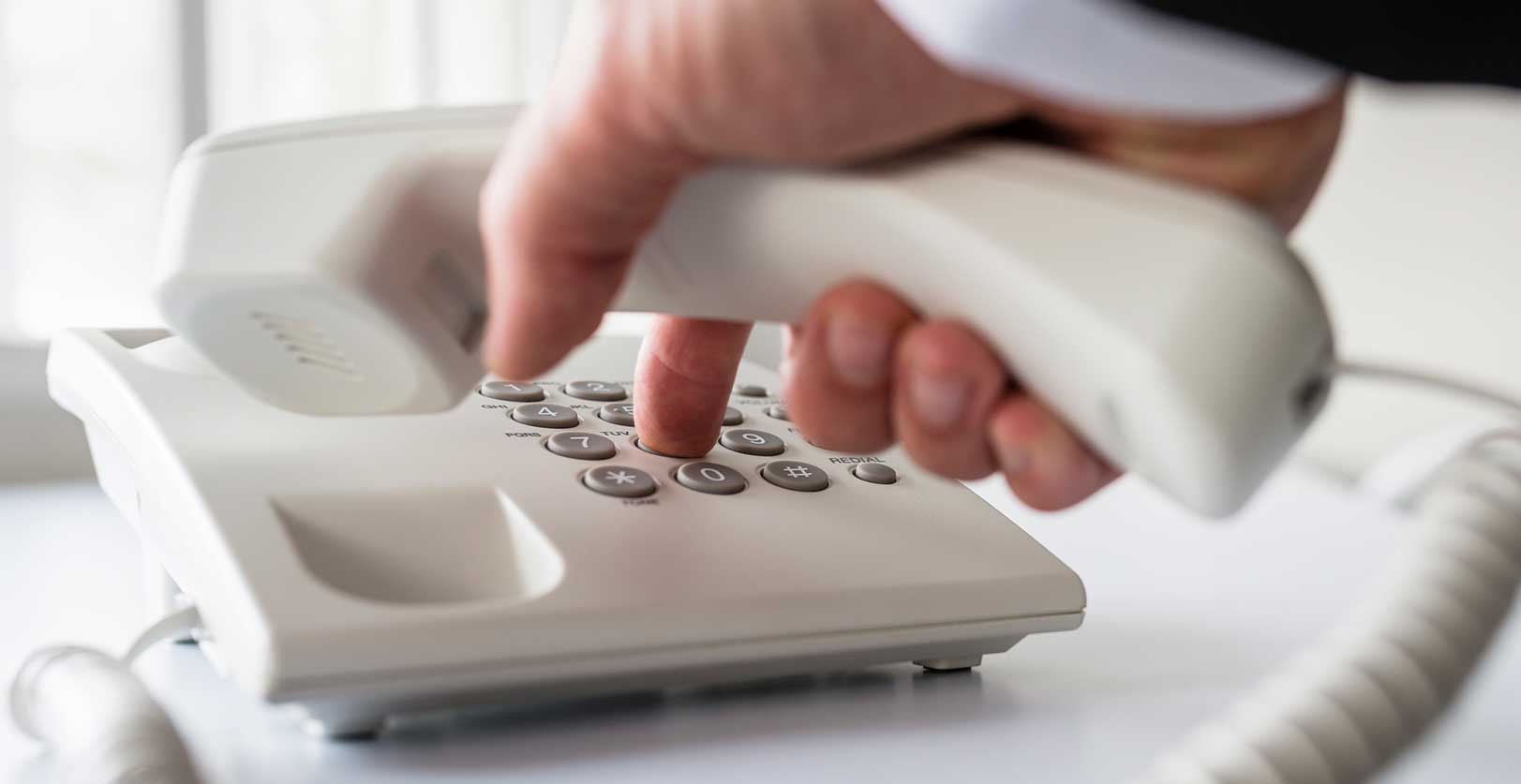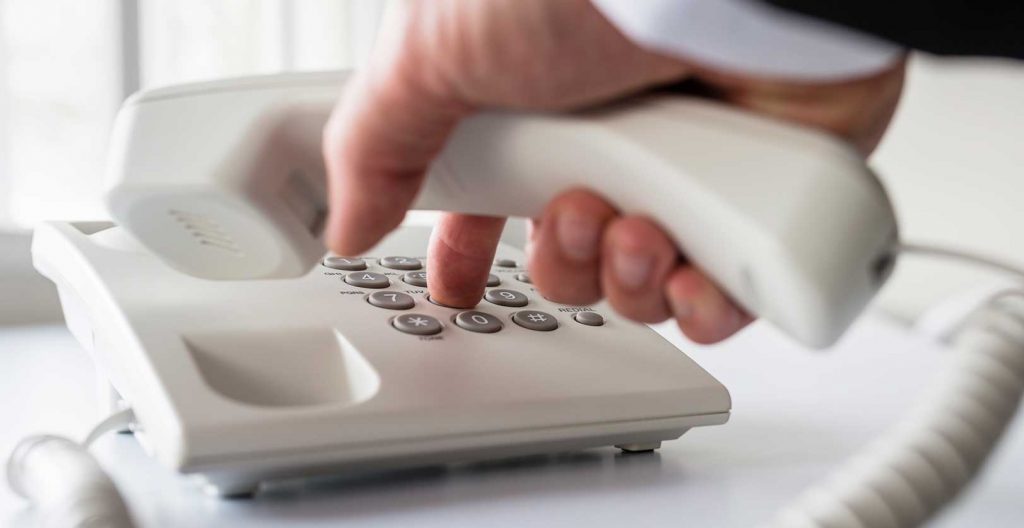
Have you ever been on a call and noticed that your voice had a tiny delay before coming through the receiver? Phone echoing is the term for this. It can sabotage business relationships and turn investing in expensive hosted PBX and VoIP systems into a waste of money.
Even if only one party has the echoing phone, phone echo issues annoy and perplex both parties. It is certain that the person experiencing echo problems will become disoriented. Fortunately, you can often take preventative measures to ensure that your communication is clear as well as quick and simple adjustments.

What exactly is phone echoes?
On a call, phone echoing is the audible result of voices repeating loudly and with a pause in between. In most cases, the party hearing the echo is not the party producing the echo. On landlines, tablets, or mobile devices, phone echo may be audible.
Echoing obstructs our ability to understand another person’s speech during a phone call and perplexes the speaker because she can hear herself on the other end of the line. The time it takes for the uttered word in the outgoing call stream to be reflected in the return stream is what’s problematic. Jitter and delay are equally prevalent in audio communication as they are in video.
The delay is hardly imperceptible if it is less than 25 milliseconds. The user experience is comparable to hearing two individuals speaking at once if the delay is around 55 milliseconds (a chorus-like effect). Although noticeable, this level of echo or delay is acceptable.
When a delay exceeds 55 milliseconds, people start to feel increasingly irritated and distracted. It becomes almost impossible to have a conversation at this point. The echo of their own voice will effectively end the conversation for a typical user by detracting from their ability to think clearly.
There are numerous potential causes of an echo on the phone. Common causes include acoustic feedback from the other person’s phone, a sluggish internet connection, a faulty headset, or a frayed ethernet cable.
Diagnosing phone echoing can be done using a variety of signs. Callers may occasionally hear their voice on their own device, for instance. On sometimes, a call will be delayed. Other times, it will sound like people are speaking over one another.
Echoing is a problem with voice calls in general. Conference calls and video conferencing may also run into issues. A conference call with 20 participants, for instance, might have just one user experiencing a problem that results in phone echoing. There will be an echo heard by everyone else on the conference call.

How to Fix Phone Echoing: 4 Causes
One of the primary concerns with phone echo can be hardware issues. While some problems can be resolved with a fast reboot, factory reset, or call settings adjustment, some problems call for more involved troubleshooting procedures.
Speakerphone
The sound of the caller is transmitted through the recipient’s loudspeaker and echoes back through the microphone, which is the most typical cause of phone echoing. In other words, a user’s speech is transferred to the other party over the phone system, played by their phone’s speaker, picked up by their phone’s microphone, and sent back to the first phone as an echo.
This is typical of cell phones, whether they are Samsung Galaxy, iPhones, or Androids. To fix this, ask the person who isn’t hearing an echo to dial down the speaker or microphone volume on their phone, and then retest the line for echo.
Test for an echo issue on the phone with a handset if you’re using a call center headset or headphones. If the handset does not have any echo, it is likely that the headset needs to be changed. Some headsets offer controls to regulate or stop line echo.
Sluggish internet
Devices need 0.1 Mbps upload and download speeds, respectively. Computers and other connected devices require an upload and download speed of 0.3 Mbps apiece, including wirelessly connected smartphones, printers, and so on. Jitter must be between 15 and 20 ms or less, and there must be no packet loss.
Your audio will echo if the internet connection does not have these features since voice transmission will slow. The majority of mobile phones and wired earpieces can still have echo issues, even if some systems offer echo cancellation.
Run a speed test first to make sure you have the bandwidth to handle calls. There isn’t really anything you can do if the person on the other end of the line has a bad internet connection. Slow internet is getting less common, though.
Electrical Interference
Electromagnetic interference is another factor in phone echoes. Usually, this happens when a wireless or landline device is placed too close to other electronic devices, like on top of a computer, next to the back of a monitor, or immediately next to a power strip.
Particularly these devices have strong electrical fields and may interfere with phones. Other devices are also capable of producing electromagnetic currents. Simply avoid placing any portion of your phone too close to other electronics. These problems can also be brought on by subpar splitters, improperly configured SD-WAN or MPLS, and other devices placed in between the device and the analog adaptor.
Broken Equipment
Your phone call may echo if your wall jacks, power cords, or handset cords are defective or broken. Problems can also result from poor wiring.
Such issues can be brought on by, among other things, long stretches of untwisted wire, damp or broken cable, and improperly terminated cables. Replace each cable and run a new test while plugged into a different Ethernet wall jack if you believe that one of the cables is to blame. If the problem is fixed, swap out the damaged wall jack or cabling. If your phone isn’t linked properly, even the best phones won’t provide you with the service you require.
Deals might be ruined by phone echoes
Audio echoes are unpleasant to cope with. At best, it is inconvenient; at worst, it will completely obstruct communication. The unfortunate news is that sometimes there is nothing you can do. You have no control over whether the individual you’re speaking to has a sluggish internet connection or broken equipment that is producing an echo. The good news is that if the issue is under your control, a simple solution is probably available.